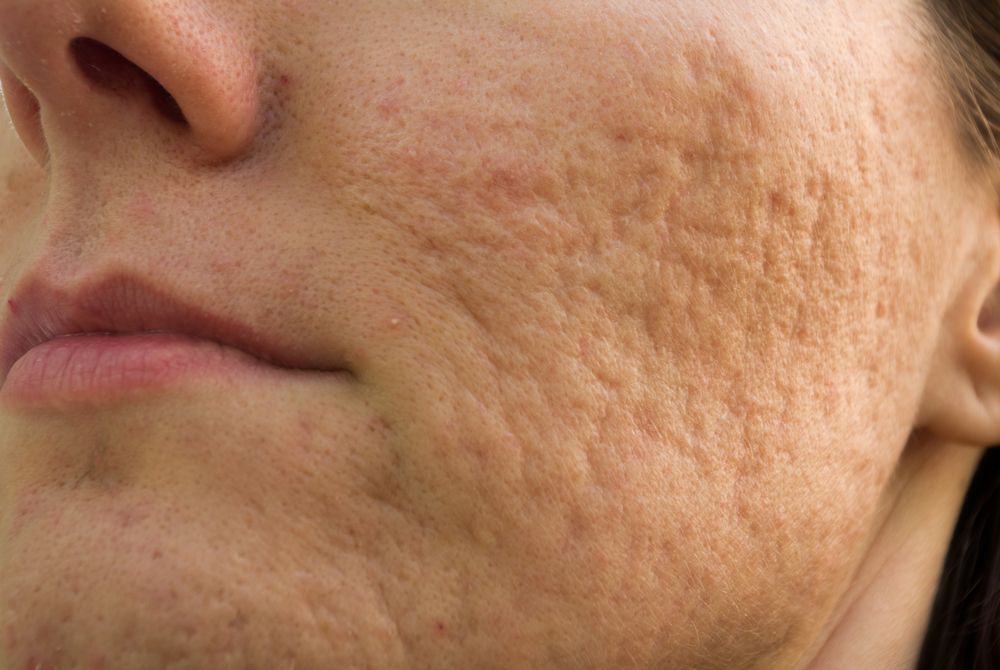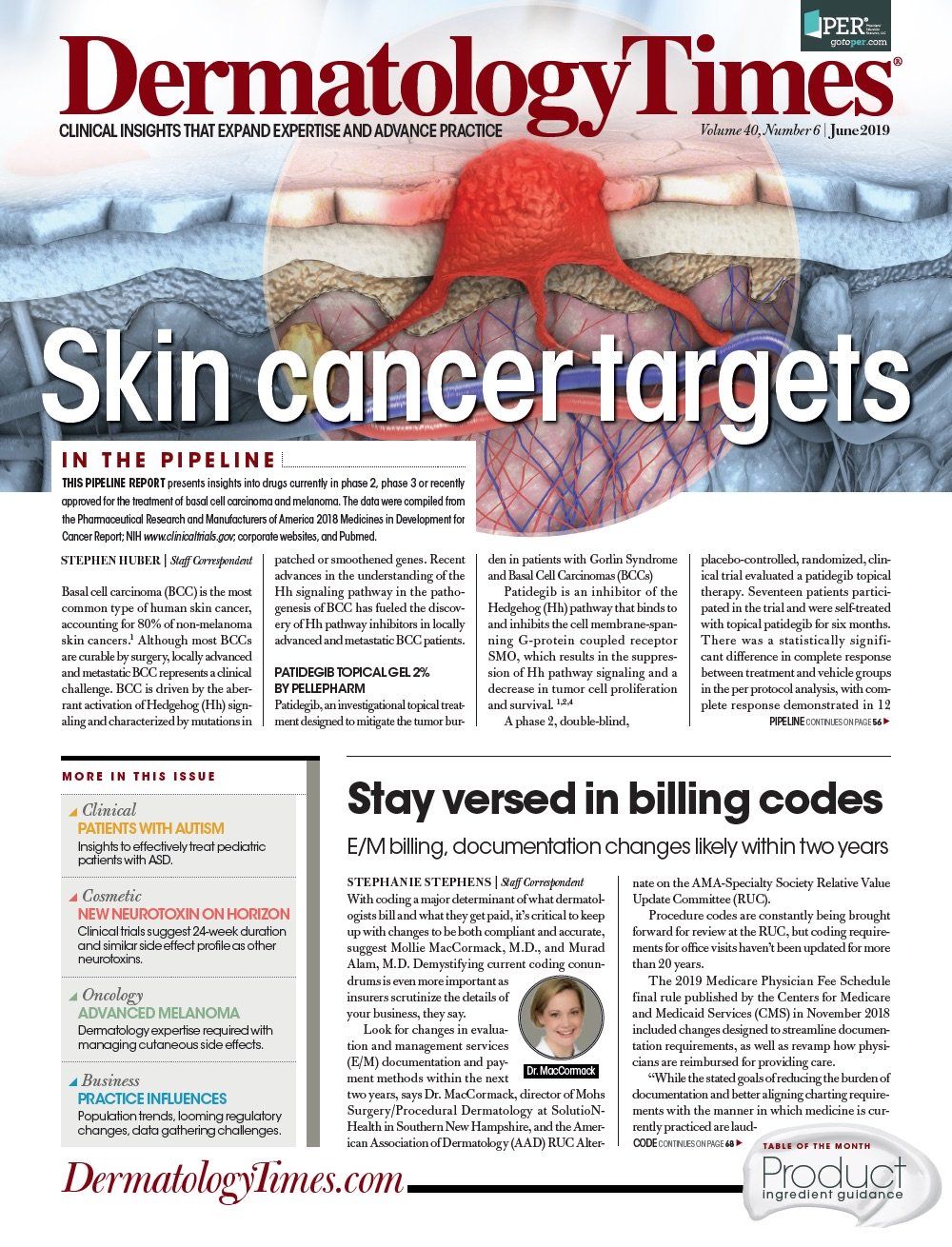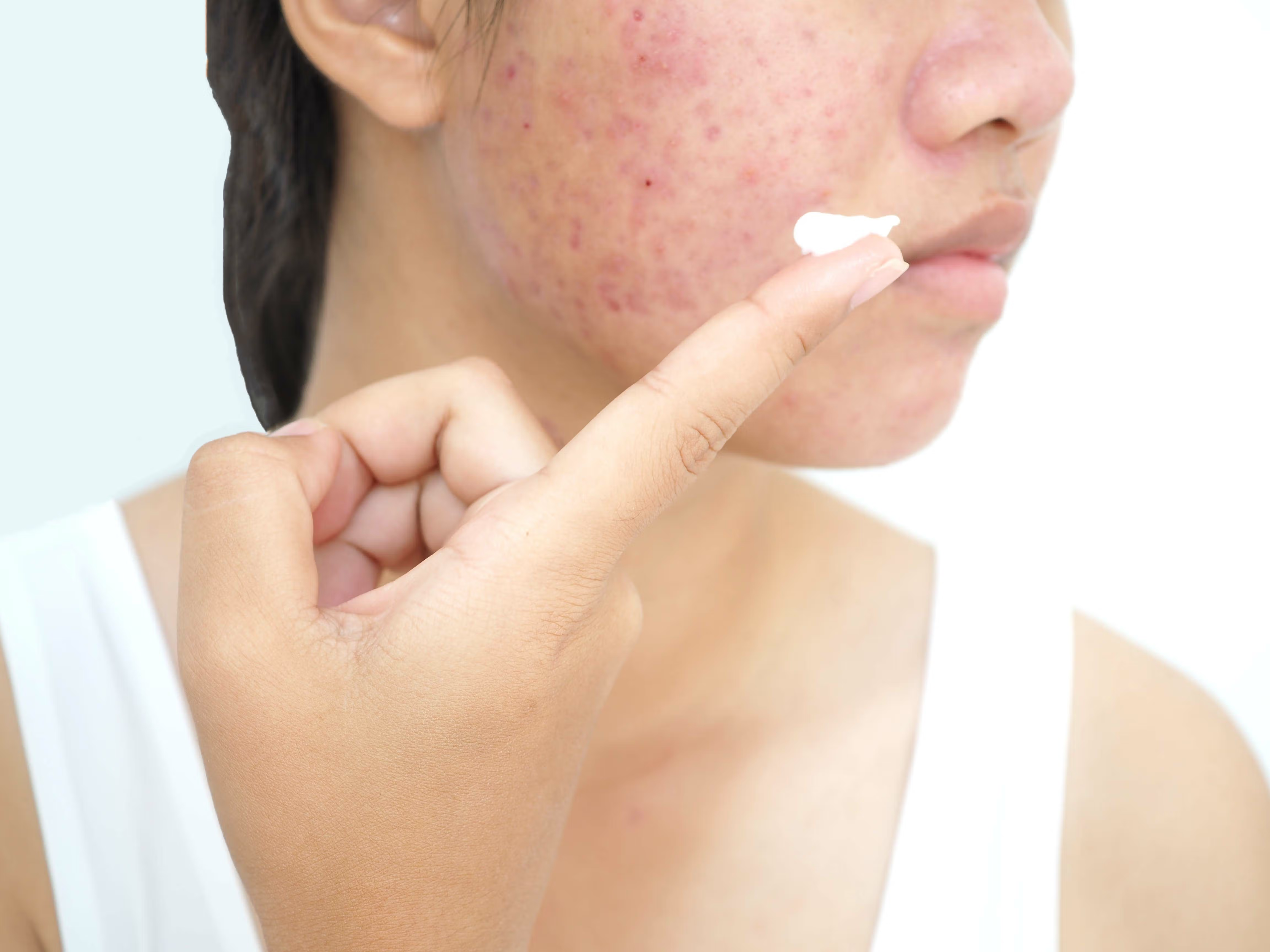
- Case-Based Roundtable
- General Dermatology
- Eczema
- Chronic Hand Eczema
- Alopecia
- Aesthetics
- Vitiligo
- COVID-19
- Actinic Keratosis
- Precision Medicine and Biologics
- Rare Disease
- Wound Care
- Rosacea
- Psoriasis
- Psoriatic Arthritis
- Atopic Dermatitis
- Melasma
- NP and PA
- Skin Cancer
- Hidradenitis Suppurativa
- Drug Watch
- Pigmentary Disorders
- Acne
- Pediatric Dermatology
- Practice Management
- Prurigo Nodularis
- Buy-and-Bill
Publication
Article
Dermatology Times
The psychosocial burden of acne
Author(s):
Scars caused by acne can be both physical and emotional. Helping patients get the care they need starts with recognizing and addressing psychosocial issues that can be caused by acne, says Jonette E. Keri, M.D., Ph.D.
“There’s not just physical scarring. There can be emotional scarring, which is why I like to treat acne aggressively," says Jonette E. Keri, M.D., Ph.D. (©BudimirJevtic/Shutterstock.com)

Jonette E. Keri, M.D., Ph.D.

When Jonette E. Keri, M.D., Ph.D., tries to convey acne’s psychosocial impact, she refers to a line in a paper published December 2004, in which researchers addressed the impacts of acne vulgaris on quality of life and self-image.
“The impact of acne may be equivalent to that of asthma or epilepsy,” notes to the article by Thomas DR in The Journal of Cutaneous Medicine and Surgery.
That description put the potential psychosocial suffering of teenage and other acne patients in perspective for Dr. Keri, associate professor of dermatology and cutaneous surgery at the University of Miami School of Medicine, Miami, Fla.
“When I read that article years ago, I thought how I remembered the one young man in my whole high school who had epilepsy. Everybody knew him. And everybody knew how hard his life was. So, I think of him, and then I think acne can be as hard as that,” says Dr. Keri, who presented on acne’s psychosocial impact during the Acne Treatment Controversies panel in March 2019 at the American Academy of Dermatology (AAD) Annual Meeting in Washington, D.C. “There’s not just physical scarring. There can be emotional scarring, which is why I like to treat acne aggressively.”
TO SCREEN OR NOT TO SCREEN
There are mental health screenings that dermatologists can incorporate in practice for acne and other patients, according to Dr. Keri. While some are shorter and easier to implement, other screenings are long and better reserved for use in research, she says.
In a letter to the editor by Rea S et al published July 20, 2017 in the Australian Journal of Dermatology, the authors suggest that dermatologists learn the Diagnostic and Statistical Manual (DSM) criteria for depression and consider implementing that as a screening tool for their acne patients.
Dr. Keri says that’s admirable but unrealistic for many dermatologists. So, Dr. Keri recommends that dermatologists practice responsibly by taking the time to talk to their acne patients about how they feel, psychosocially.
“You can have a simple discussion with the patient, rather than doing a screening,” she says.
There are tools for having the discussion, including questions to ask. But Dr. Keri just sits down and asks patients how their mood is; how they’re feeling about their acne; etc.
“Ask them if they’re feeling badly about their skin. If they’re eating. If they feel self-conscious. Simple things,” she says. “If the dermatologist feels comfortable with the patient, he or she might refer to the patient’s primary care, psychologist or psychiatrist, depending on the severity of the psychiatric symptoms that the dermatologist is seeing. I think we have a responsibility as dermatologists to be aware that there can be these feelings in these patients. But I think for us to do big elaborate screenings is really not practical and people aren’t going to do it.”
Dermatologists in academic settings often have a built-in referral network. Dr. Keri says that can get patients the help they need quickly and with less effort.
“I have, for example, one young girl who had a fair amount of depression and anxiety. She would pick her skin in addition to having acne, so she had acne excoriee,” Dr. Keri says. “I developed a rapport with her. She told me she was at a new school and the kids were tough. We got her an appointment with the pediatric psychology division. She had weekly sessions and is doing much better. Her acne is better, she’s not picking and she feels better.”
MENTAL HEALTH IMPACTS TREATMENT
Psychosocial burden impacts how aggressively Dr. Keri treats her acne patients. Interestingly, it’s often the patients who want to do what they have to do to get rid of their acne, while many parents are reluctant about using more aggressive, systemic therapies.
It’s important to hear and factor in the child’s point of view, she says.
If the impact is relatively severe for a child’s quality of life or self-esteem Dr. Keri might suggest more aggressive therapies.
“If they’re borderline for getting isotretinoin and they really want to get better, I might use it, for example,” she says.
Those treatment recommendations should be based on the individual acne patients. Some severe acne patients don’t appear a bothered by their skin, according to Dr. Keri.
“Sometimes, I’m more worried about the acne than they are. I worry about their long-term skin health, and I’m trying to prevent more scarring. So, I have to educate them about my concerns before recommending treatment,” she says.
Dr. Keri says she does not generally prescribe antidepressants for acne patients.
“I have done it a few times in my career. Within the last month, I’ve done it once prescribing paroxetine, but then I ultimately got that patient to see a psychologist and psychiatrist,” she says. “I don’t think many dermatologists feel comfortable with prescribing these medications.”
But Dr. Keri says it’s important to act on behalf of the patient. Sometimes that means contacting the patient’s primary care doctor when patients are upset about their acne or making a referral to a mental health specialist. Dermatologists should consider aligning with mental health professionals who are they feel comfortable referring to and are experienced in taking care of patients with skin conditions.
The key is to help the patient most directly get the care they need, without too many steps, to address psychosocial issues from acne, she says.
Disclosures: Dr. Keri is an advisor with Ortho Dermatologics, Pierre Fabre Dermatologie, Almirall, Dermira and Menlo Therapeutics.

2 Commerce Drive
Cranbury, NJ 08512
All rights reserved.




